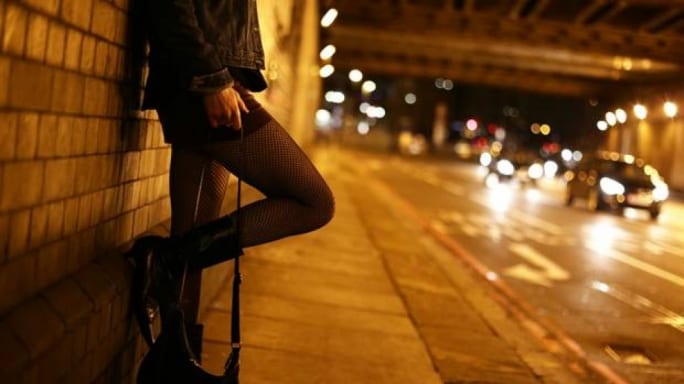After last week’s post about proposed legislation in San Francisco that would decriminalize prostitution and our poll that indicated that 73% of you not only supported decriminalization but legalization as well, we decided to take a more in-depth look at both. After the jump, we break down the differences and the pros and cons of both. There may be a soap box moment from yours truly as well.
DECRIMINALIZATION does not legalize sex-for-hire work, but it does instruct local police departments to treat these cases as a low priority, similar to the way in which marijuana laws are enforced in the State of California. Essentially, law enforcement looks the other way, allowing prostitutes to have the peace of mind to report crimes against them, or other crimes they’ve witnessed, without fear of arrest. In some decriminalization proposals, the money spent on enforcing prostitution laws is redirected to social service organizations.
- Proponents of decriminalization say doing so gives sex workers rights they wouldn’t have otherwise (rights that are impossible to have when your workplace is “illegal”) and offers prostitutes regular STD tests and pelvic exams, without fear of being turned in. When Berkeley, California, considered decriminalization a few years ago, Carol Leigh, a spokesperson for COYOTE (Call Off Your Old Tired Ethics), a San Francisco-based sex workers rights organization, said, “Generally, there is a distrust of the police among prostitutes. If you are raped, you don’t go to the police.” The theory is that decriminalization would make sex work safer–for sex workers.
- Opponents of decriminalization say that it would increase crime and attract sex workers and johns from other areas where sex work is criminalized. As a result, law enforcement in these areas would be under an even greater burden. Additionally, opponents say decriminalization might as well be legalization, since the laws are not actually actively enforced.

LEGALIZATION is what it sounds like. A few counties in Nevada have legalized prostitution–primarily, prostitutes work in brothels with managers or madams. The brothels pay taxes, are regulated by the local government, and are an integral part of the local economy. In addition, brothels require monthly blood tests of sex workers, so as to safeguard against the spread of HIV and other STDs.
- Proponents of legalization ultimately believe that outlawing prostitution violates an individual’s civil liberties and one’s freedom to do what one chooses with one’s body. Like those in favor of legalizing drugs, proponents of legalization of sex-for-money argue that everyone benefits when sex work, which will go on regardless of legality, is monitored and regulated by the government. As a consequence, the spread of STD’s would lessen, as would violent crimes against sex workers. Proponents point to Nevada’s relatively successful bordello system as evidence legal prostitution can work.
- Opponents of legalization believe prostitution contributes to high crime rates, rates that would only increase if prostitution were legalized. Many opponents believe sex work is amoral, a so-called profession that shouldn’t be on a par with CEOs or school teachers. Legalization, in opponents’ eyes, will lead to the downfall of American morality.
Since prostitutes must engage in sex work in a clandestine fashion, identifying the number of American women who engage in prostitution isn’t easy. Most calculations range between 230,000 and 350,000, but some estimates run as high as 1.3 million. Some women who go into prostitution do so out of desperation. Some women do so for reasons that have nothing to do with victimization.
When I was in college, I wrote an article for my school paper about sex workers. One of the women I interviewed, who worked in a Nevada brothel, came from an upper-middle-class family, was a graduate of a prestigious university, and became a prostitute because she liked sex and found the profession empowering. That’s not always the case for women who prostitute themselves, but the fact of the matter is that making sex work illegal has done nothing to deter men from soliciting or paying for sex.
The focus should be on keeping prostitutes safe, from abuse, assault, rape, and murder, as well as from sexually transmitted diseases. And if sex workers should be required to get regular blood and STD tests, so should the clients who see them. Whether these two protections–against violence and against disease–come about through decriminalization or legalization depend upon the letter of the law. Ultimately, I believe sex workers shouldn’t be treated like drug dealers, violent criminals, or pimps who exploit women for monetary gain.
Do you think prostitution should be decriminalized? Legalized? Should a woman have a right to sell her body for sex if that’s her choice? We want to hear your thoughts in the comments!
Original by Amelia
